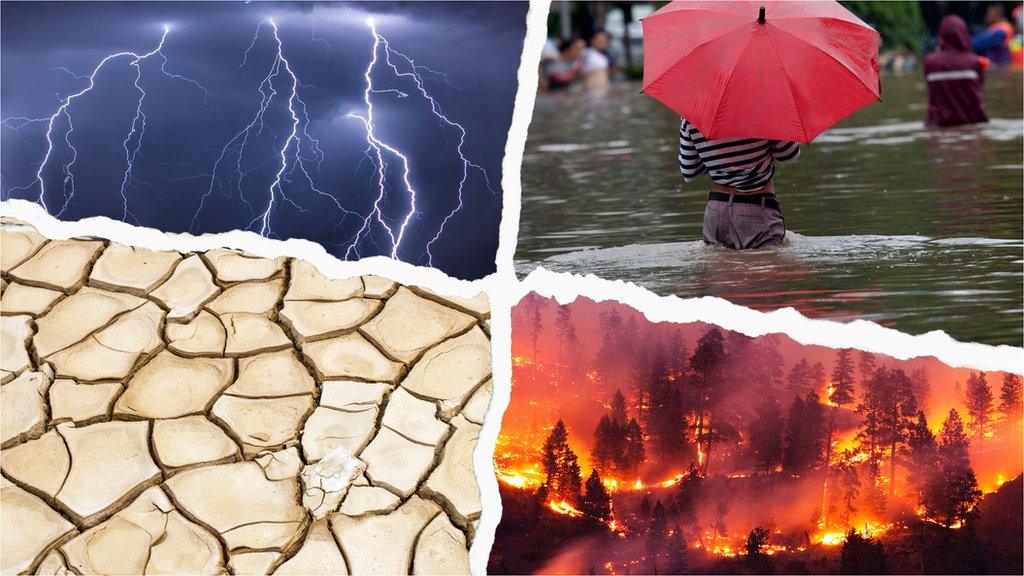Climate change: Link with human behaviour a 'fact' UN report says
- Published
- comments
Extreme weather: Has it been caused by climate change?
The link between humans and climate change is a "statement of fact", UN scientists have said in a biggest ever report on climate change.
The document by the IPCC is the most up-to-date assessment of how global warming will change the world in the coming decades.
It says "it is unequivocal that human influence has warmed the atmosphere, oceans and land".
It warns that the changes taking place to the climate now are the biggest to have happened for thousands, or hundreds of thousands, of years, and in many cases it will be too late to stop or reverse the effects of climate change.
BBC science and environment correspondent Victoria Gill answers YOUR questions
This UN backed study is the first in a series of reports that will be published over the next few months, and is the first major review of the science of climate change since 2013.
But the report also gives new hope that cuts to greenhouse gas emissions could help to stabilise rising temperatures.
If you have any questions about what's in the report, go to this page and we'll get a BBC experts to answer some of them for you.
What have people said in response?
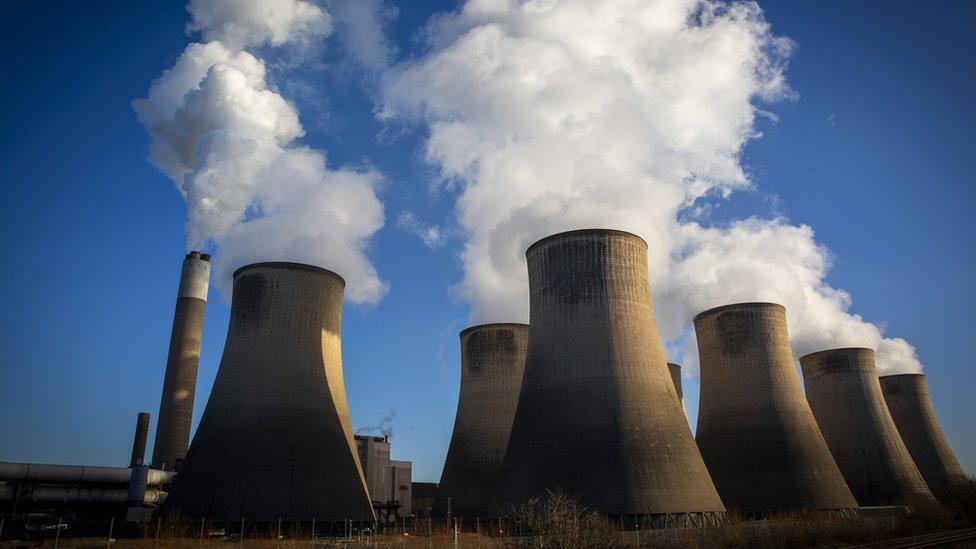
The Ratcliffe-on-Soar power station in Nottinghamshire is one of Britain's two remaining coal-fired power stations
UK Prime Minister Boris Johnson has called the report "sobering", and said he hoped it "will be a wake-up call for the world to take action".
He said it was clear that the next 10 years would be vitally important to securing the future of the planet and called for a move away from coal towards cleaner energy sources.
UN Secretary-General, António Guterres said that the report was "a code red for humanity", but added "if we combine forces now, we can avert climate catastrophe".
In three months time world leaders will gather for a key climate summit in Glasgow known as COP26, to talk about climate change and how different countries are planning to tackle it.
Mr Guterres said:" As today's report makes clear, there is no time for delay and no room for excuses. I count on government leaders and all stakeholders to ensure COP26 is a success."
The Intergovernmental Panel on Climate Change is a UN body set up in 1988 to assess the science around climate change.
It provides governments with scientific information they can use to develop policies on global heating.
What are they key findings of the report?
Link between human activity and climate change
The report says that over the past decade the connection between weather events and the influence of humans "has strengthened".
This warming is "already affecting many weather and climate extremes in every region across the globe".
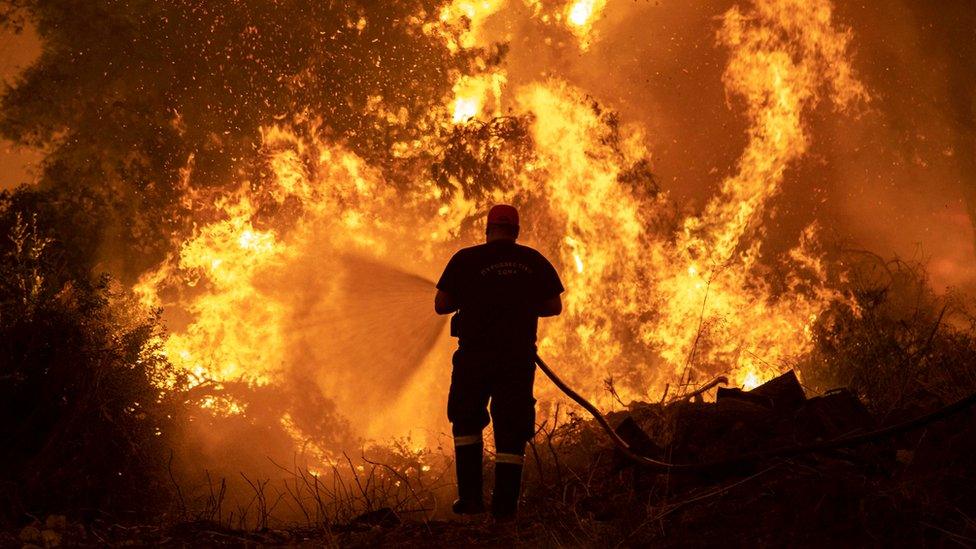
Wildfires have been burning in Greece in recent days
The effects on this can be seen in heat waves for example those in Greece and western North America, or floods like those in Germany and China.
The authors say that since 1970, global surface temperatures have risen faster than in any other 50-year period over the past 2,000 years.
Climate Anxiety: Five tips to deal with your worries about climate change
Record rises in temperature
The IPCC also warns that, if emissions of warming gases continue, we could see a key temperature limit broken in just over a decade.
Scientists say that within the next twenty years, temperatures are likely to rise by more than 1.5C, breaching the 2015 Paris climate agreement.
The agreement, which almost every nation on Earth signed up to, pledges to keep the rise in global temperatures well below 2C this century and with the aim of keeping it below 1.5C.
The report says that only very fast and dramatic reductions in greenhouse gases over the next ten years can prevent this, as each time the temperature rises by even a fraction of a degree it speeds up with rate at which these changes will occur.
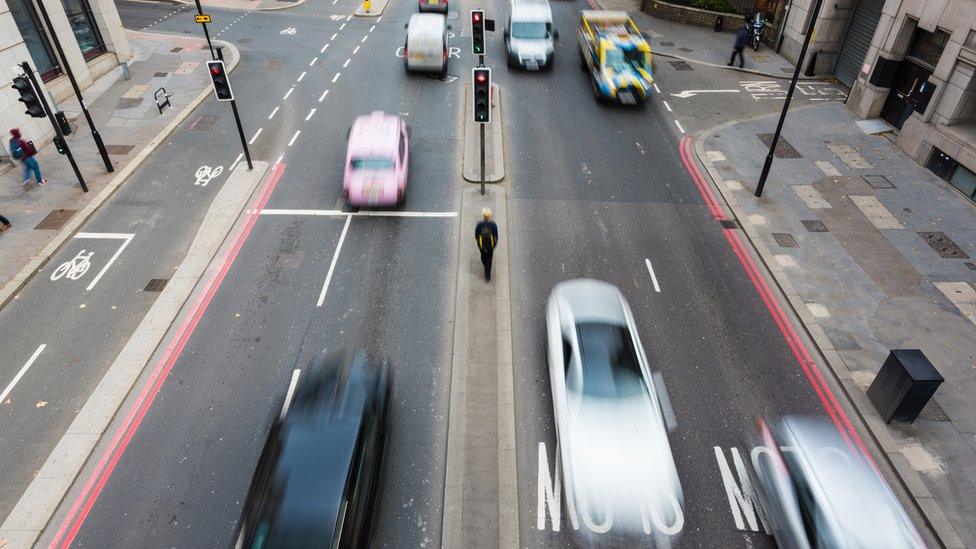
Car exhaust fumes contribute to greenhouse gases
Some of the long-term impacts of temperatures rising are likely to be irreversible
The report warns that even if the world manages to limit warming to 1.5C, it still will not return the world to the more moderate weather patterns of the past.
The oceans will continue to warm and become more acidic. Mountain and polar glaciers will continue melting for decades or centuries.
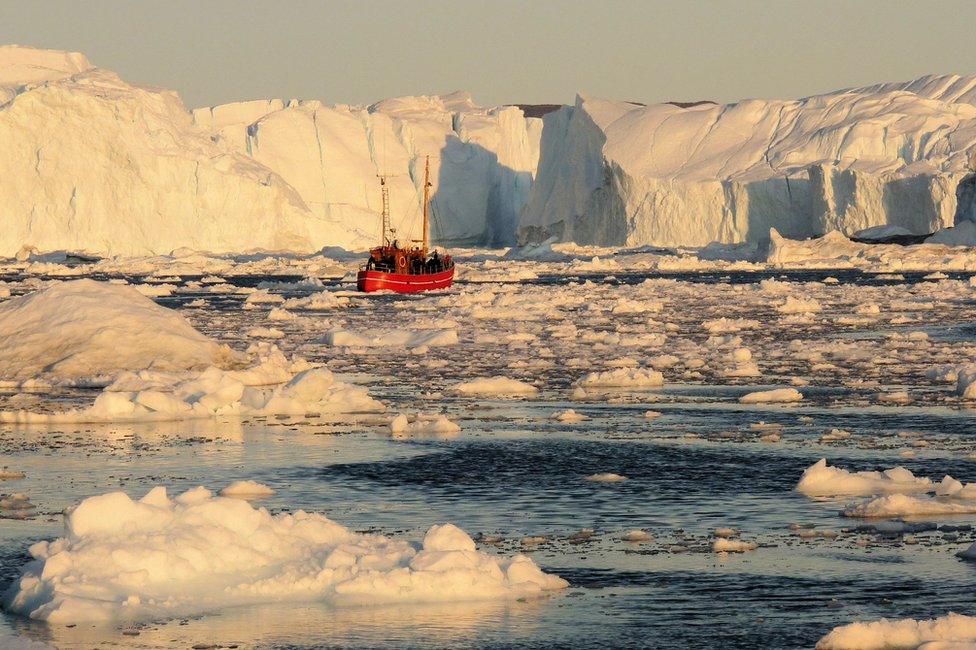
A small boat in western Greenland, dwarfed by icebergs that have come off Greenland's largest glacier
Possible rises in sea levels
Scientists have been doing calculations to work out how different levels of emissions could lead to a possible rise in sea levels.
They say that although it is unlikely, there could be a rise of two metres by the end of this century and a five metre rise by 2150.
If that were to happen, there would be very serious consequences, and would threaten many millions more people in coastal areas with flooding by 2100.
Does the report have any good news?
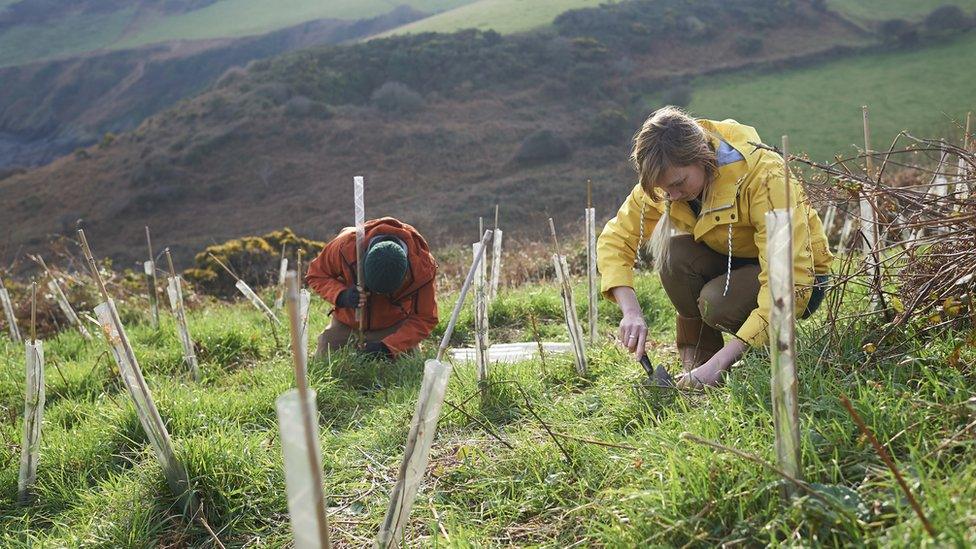
Tree planting is one way to absorb carbon in small quantities
Scientists are hopeful that if we can cut global emissions in half by 2030 and reach net zero by the middle of this century, we can stop and possibly reverse the rise in temperatures.
Reaching net zero means reducing greenhouse gas emissions as much as possible using clean technology.
It also means burying any remaining releases using carbon capture and storage, or absorbing them by planting trees.
- Published22 April 2021
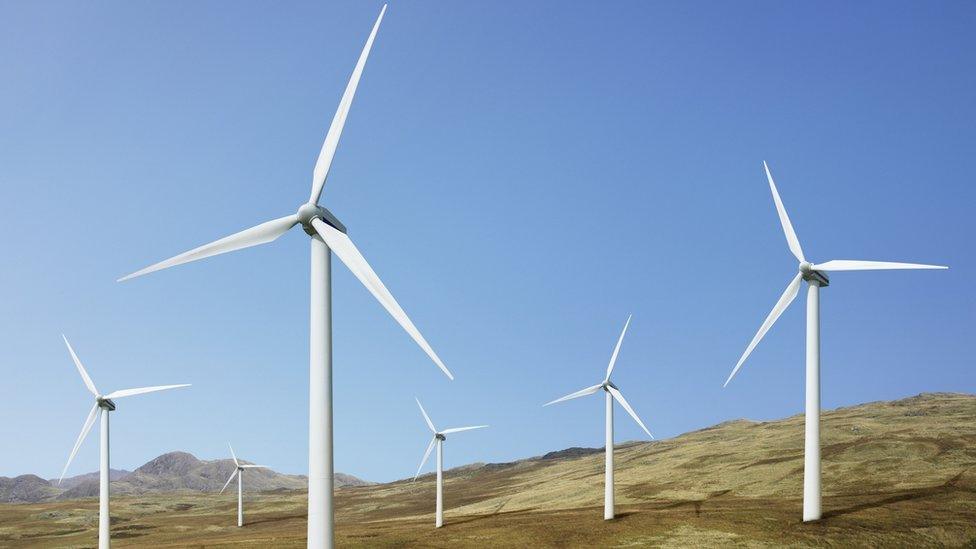
- Published31 October 2021
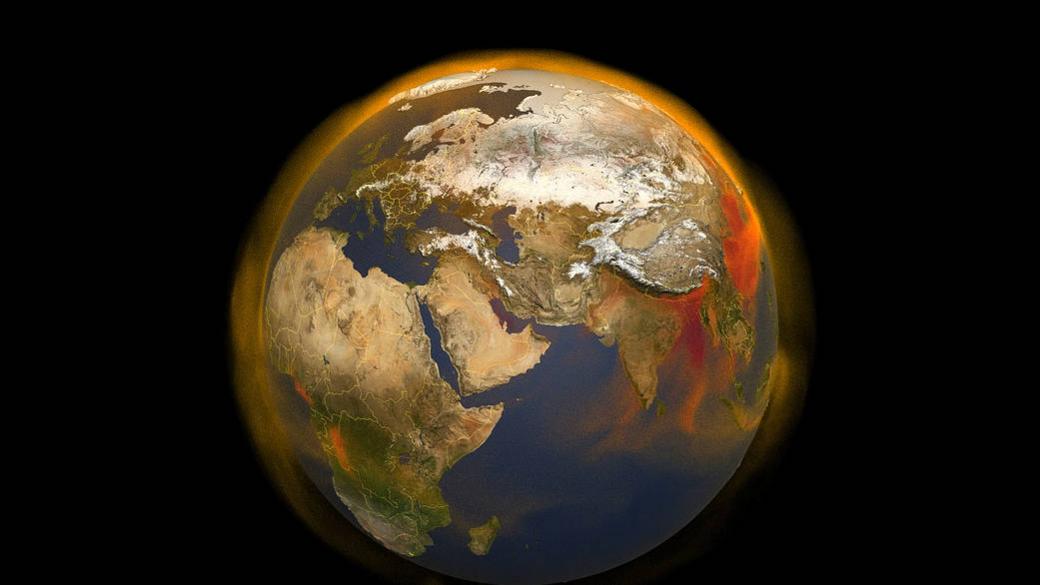
- Published3 August 2021
